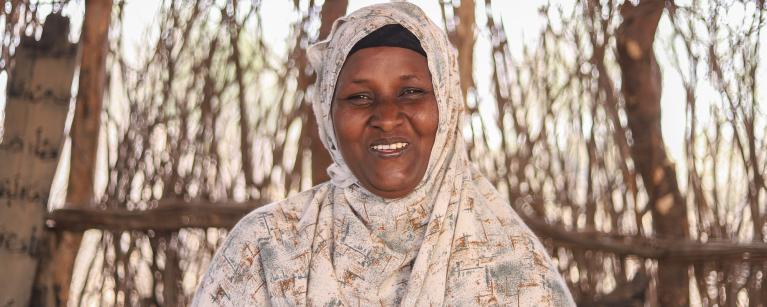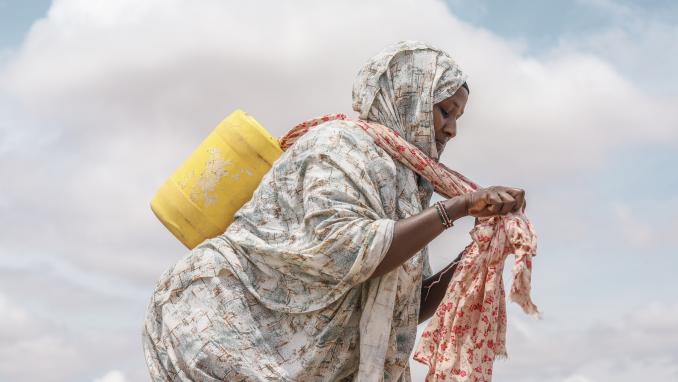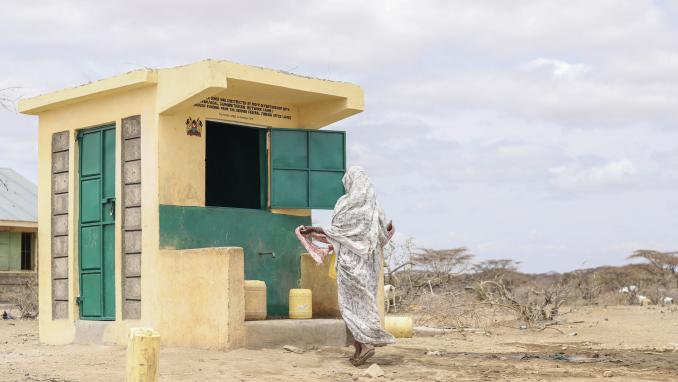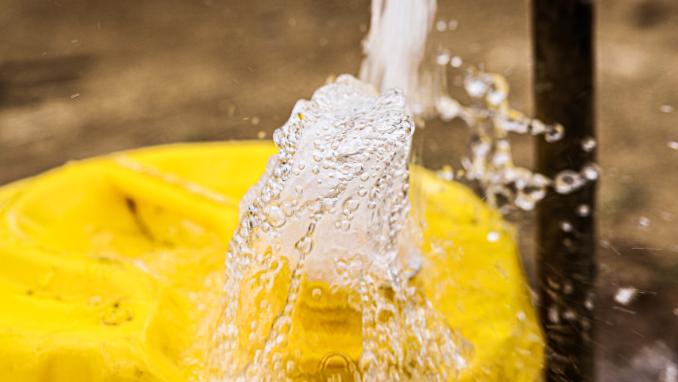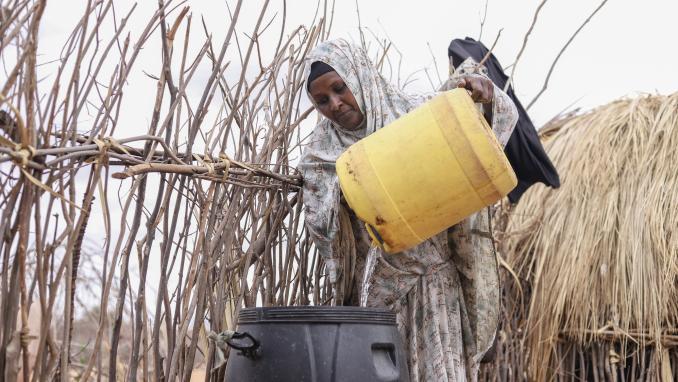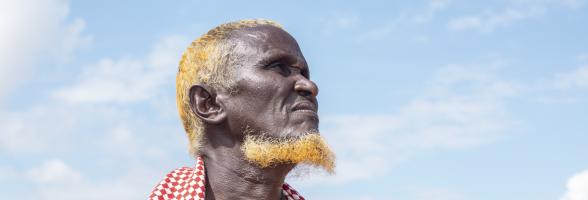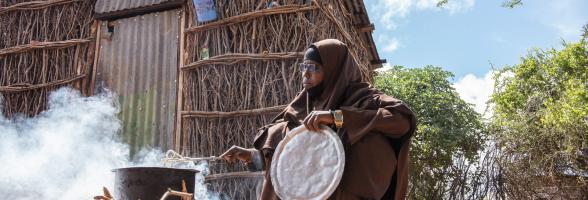There is very little control we have over life and things that happen to us. What we can control however is how we react to what life throws at us. There’s a lot that happens when disaster strikes. People become more selfish, the love for self outweighs the love for others, a neighbour becomes a threat, everything changes, and it is no longer life as usual.
In Barambate Village, like the case with most villages in the county, drought has had its fair share of effects. We have a scheduled interview with Abdia, a middle-aged mother and resident of the village. She has that distant look in her eyes. Her beautiful smile can fool you. But her eyes can tell you a story. Life has dealt her several cards and each time she seems to have won the lottery, but, just by a whisker. Our team meets her at her small vegetable stand in the market and she is holding her little boy in her hands as she arranges the kales with the other. He sinks deeper into her arms when he notices strangers approaching.
She is of Somali descent; her parents migrated all the way to Kenya and settled in Barambate many years ago. She was born and raised in this region. This is where she calls home, this is where her children call home. But home has not been kind to her and her children for a few years now. You see, water is life, and home has no life because water has been scarce for close to five years now. “I had approximately 400 goats and several cattle. Now I have 200 goats and no cattle. The drought has caused all the wells to dry up and in turn our animals had no water to drink, bringing about their death in large numbers.”
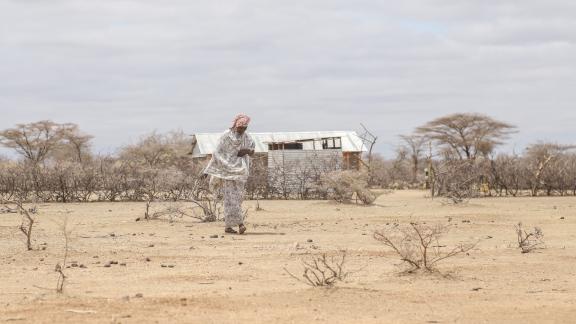
Abdia Ibrahim, program participant of the water project in Barambale in Isiolo county where a water point was set up by MID -P in partnership with Oxfam. Photo Credit: Eyeris Communications/Oxfam
The drought has caused the nearby rivers and dams to dry up causing them to walk for almost 30 Kms to access water for their domestic use.
“We used to only have one meal a day, shower once a day or sometimes not at all, we would ration water for what we thought was important.”
The lack of water has brought about serious health problems for her children since the water she would fetch at the river was not suitable for drinking, but they had no choice at the time.
What the emergency drought response project, implemented by Merti Integrated Development Program (MID-PI) under Oxfam in Kenya and funded by the German Federation Foreign Office (GFFO), has done is give Abdia and her family a choice. Through rehabilitation of the borehole in the area and proper piping of water to the watering point within the community, Abdia now has access to clean usable water and better yet she doesn’t have to spend half her day looking for water.
“I can now enjoy good clean water that is safe for drinking and cooking without fearing for my children's health, since they give us water treating chemicals and storage tanks that allow us to have clean water in the house for more than a week. Also, the ability to take a bath daily is unmatched. We were really suffering without water.” The project also aims to restore dignity to girls by giving them reusable sanitary towels and basins. Abdia has a teenage daughter in high school and this came in handy to help her especially when she has her monthly period.
“Before, my daughter would use our old clothing items as a substitute for sanitary towels. It was messy and would mean she is away from school for the duration of her monthly period. Now, she can comfortably be in school and be comfortable.”
Abdia’s dreams and hopes that one day her community will be able to say that the drought is over. That lacking water will be a thing of the past, that they can be self-reliant as a people and work together to make the lives of their children better than theirs.
“I can now enjoy good clean water that is safe for drinking and cooking without fearing for my children's health, since they give us water treating chemicals and storage tanks that allow us to have clean water in the house for more than a week. Also, the ability to take a bath daily is unmatched. We were really suffering without water.”
